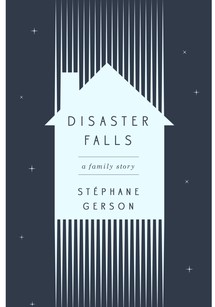Disaster Falls
By Stéphane Gerson
272 pages;
Crown
Gerson; his wife, Alison; and their young sons were rafting
down the Green River in Utah when the unthinkable happened. Despite the guide's
assurance that Disaster Falls was safe, 8-year-old Owen fell into its angry
waters; hours later, a search party found his body. That first raw, heartsick
night, Alison said, "It is just the three of us now. We cannot do it
alone. We have to stick together." That vow became crucial in fighting the
isolation of grief as the family withdrew from a well-meaning community that didn't
know how to help. "A rabbi confides that he has never seen anything like
it, not once in twenty years on the pulpit," Gerson says. "Friends
write that losing a child is a hole without end, beyond the map of human
experience." Alison escapes into her needlepoint and consults a medium,
hoping to find her lost child; Stéphane dives into his writing in an
effort at comprehension. His story circles around and around the fatal day,
each time with more detail, conveying the sense that the horror can only be
approached elliptically, over time. Eventually, Gerson travels with his
surviving son, Julian, and his elderly father to Belarus, where their family has
roots. There, they follow the route where men, women and children were murdered
during the Holocaust. Not long after, he attends to his father's "good
death," a loss that's surprisingly healing. What starts as a probing of
the deepest personal wound opens up to a profound, universal exploration of our
mortality.
— Dawn Raffel


